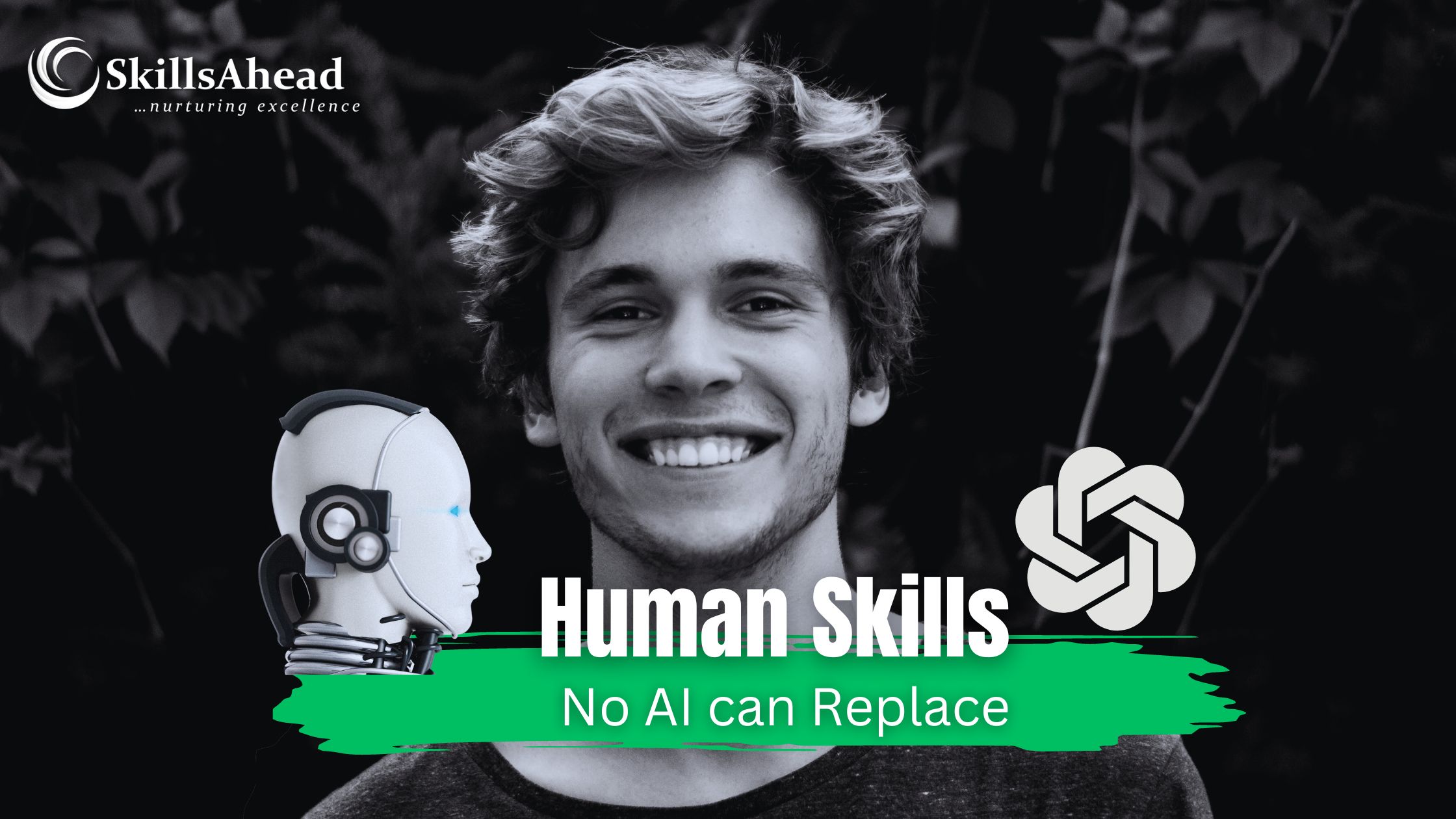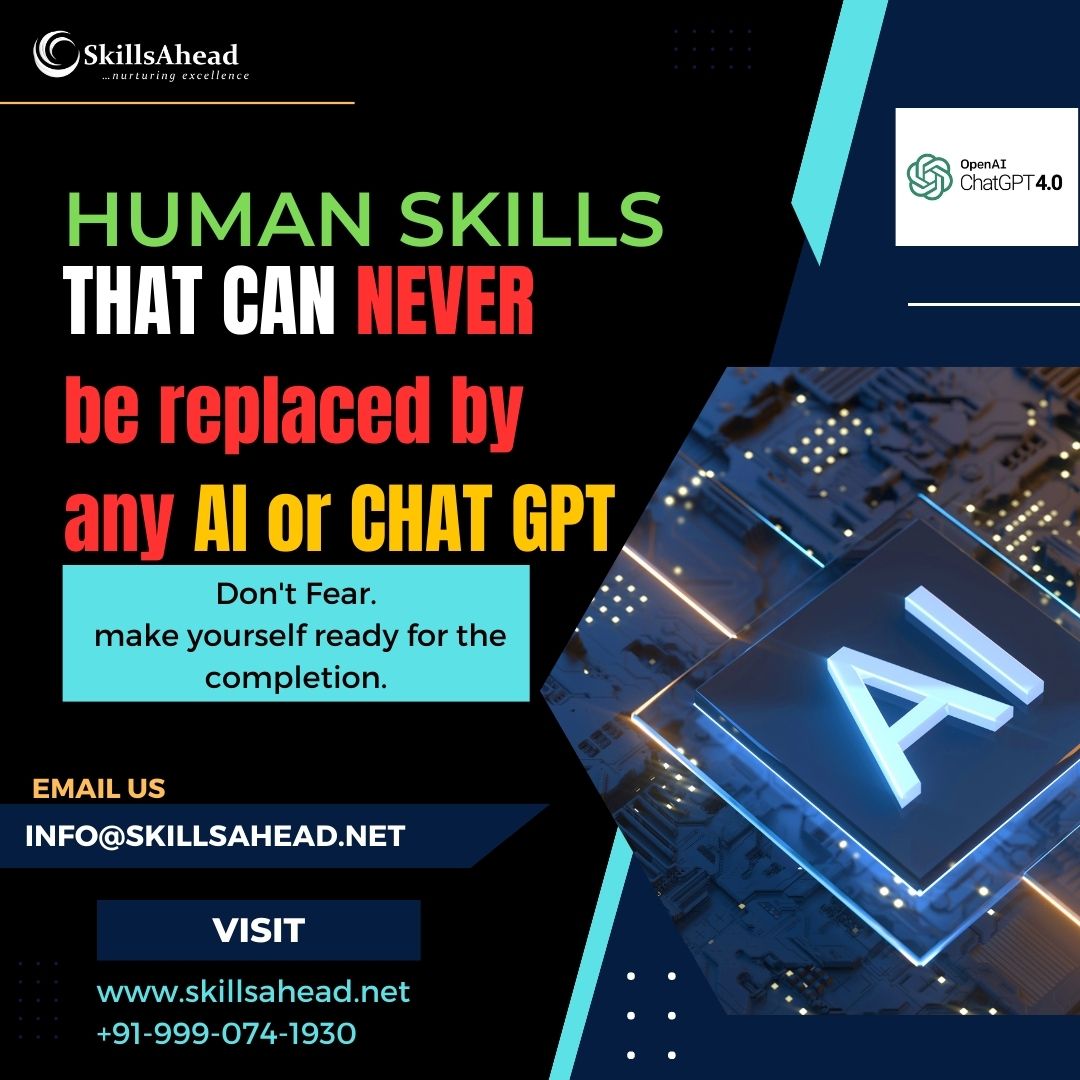Human Skills that can not be replaced by AI or Chatgpt
Why People are Afraid of AI or Chat GPT?
The fear surrounding AI and ChatGPT can stem from various factors. Here are some reasons why people may be afraid of AI and ChatGPT:
- Job Displacement: One of the primary concerns is the potential impact of AI on employment. As AI and automation technologies advance, there is a fear that they may replace human workers, leading to job loss and economic disruption.
- Lack of Control: AI systems can make decisions and perform tasks without human intervention. This lack of control raises concerns about potential unintended consequences or misuse of AI technology, especially if it falls into the wrong hands or is used for malicious purposes.
- Ethical Implications: AI raises ethical questions, such as the potential for bias in decision-making algorithms or the ethical dilemmas faced when autonomous systems are entrusted with critical decisions that affect human lives.
- Privacy and Data Security: AI and ChatGPT often rely on vast amounts of personal data to operate effectively. Concerns arise regarding the privacy and security of personal information, as well as the potential misuse or unauthorized access to sensitive data.
- Loss of Human Interaction: The increased reliance on AI and ChatGPT for communication and problem-solving may lead to a reduction in meaningful human interaction, potentially affecting social dynamics and emotional well-being.
- Technological Singularity: Some people fear the idea of AI systems becoming superintelligent, surpassing human capabilities, and potentially gaining control over their own development. This concept, known as technological singularity, raises concerns about the long-term future of humanity.
- Misinformation and Manipulation: AI and ChatGPT have the potential to generate and spread misinformation or be used to manipulate public opinion. This fear arises from the difficulty in distinguishing between authentic human-generated content and AI-generated content.
- Lack of Transparency: The complexity of AI algorithms and decision-making processes can make them difficult to understand or explain. This lack of transparency can breed mistrust and uncertainty about how AI systems arrive at their conclusions or recommendations.
- Science Fiction Portrayals: Popular culture often depicts AI as a threat to humanity, fueling dystopian narratives and amplifying fear and apprehension.
It is important to note that while these concerns are valid, AI and ChatGPT also hold immense potential for positive impact. Addressing these fears requires responsible development, regulation, and ethical considerations to ensure that AI technologies are designed and deployed in a manner that benefits society as a whole.
Human Skills that can never be replaced by any AI or any Chat GPT –
While AI and ChatGPT have advanced significantly, there are certain human skills that are difficult to replicate or replace entirely. These skills involve complex cognitive and emotional capabilities that make us uniquely human. Some of the skills that are challenging for AI or ChatGPT to replicate include:
- Empathy and Emotional Intelligence: The ability to understand and empathize with others’ emotions, demonstrate compassion, and provide emotional support.
- Creativity and Innovation: The capacity to think creatively, generate original ideas, and find innovative solutions to complex problems.
- Critical Thinking and Judgment: The skill to analyze information, evaluate different perspectives, and make sound judgments based on contextual factors.
- Complex Decision-Making: The capability to weigh various factors, consider ethical implications, and make decisions in uncertain or ambiguous situations.
- Adaptability and Flexibility: The aptitude to adjust to new circumstances, learn and acquire new skills, and embrace change with agility.
- Intuition and Gut Feelings: The ability to rely on instinctive feelings and intuition when making decisions or navigating uncertain situations.
- Leadership and Influence: The capacity to inspire, motivate, and guide others towards achieving common goals, while also being able to navigate interpersonal dynamics.
- Interpersonal Communication: The skill to engage in meaningful conversations, understand non-verbal cues, and establish rapport with others in various social and professional contexts.
- Ethical Decision-Making: The capacity to navigate complex ethical dilemmas, consider moral implications, and make decisions that align with values and principles.
- Cultural and Contextual Understanding: The ability to comprehend and navigate diverse cultural nuances, adapt communication styles, and respect cultural sensitivities.
While AI and ChatGPT can assist in certain aspects of these skills, the depth and breadth of human experience and intuition remain challenging to replicate completely. Human skills are multidimensional and encompass complex cognitive, emotional, and social aspects that are deeply intertwined with our unique human consciousness. These skills continue to be highly valued in various domains, including leadership, creativity, empathy, and ethical decision-making.



